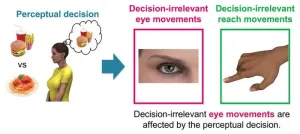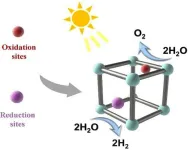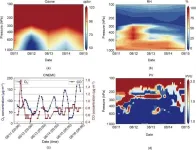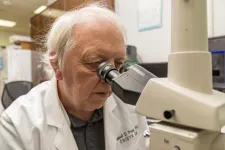(Press-News.org) A program designed to ensure fairness and that people living in the most disadvantaged U.S. neighborhoods would be offered a scarce, potentially life-saving medication proved feasible in a large health system. The approach can improve equity in receipt of the drug by people disproportionately affected by disease, according to a new analysis published today in JAMA Health Forum by University of Pittsburgh and UPMC scientist-clinicians.
However, the study revealed that more work needs to be done in building trust with and improving the ability to contact Black patients to ensure they ultimately receive scarce medications and other health care resources at rates comparable to their white counterparts.
“Equitable allocation of a resource is not the same as equitable receipt of that resource,” said lead author Erin McCreary, Pharm.D., clinical assistant professor in the Pitt School of Medicine’s Division of Infectious Diseases and director of infectious diseases improvement and clinical research innovation at UPMC. “I’m incredibly proud to share how UPMC – with a lot of hard work and dedicated people – was able to equitably allocate a scarce medication in a very short amount of time and achieve equity in its receipt amongst our most disadvantaged patients, but it is clear that we have more work to do in terms of receipt by race.”
Just before Christmas 2021, UPMC was awarded its first doses of Evusheld, a medication given to prevent COVID-19 in immunocompromised people who do not produce enough immunity in response to vaccination. But those 450 doses from the federal government were enough only for a quarter of a percent of the 200,000 eligible UPMC patients.
Health system leaders knew that patients from economically disadvantaged neighborhoods, who are disproportionately racial minorities, were most likely to suffer worse outcomes if they contracted COVID-19. So, to promote equity and maximize the life-saving potential of its Evusheld allocation, UPMC first winnowed its list to 10,834 of its most immunocompromised patients. Then the health system created a “weighted” lottery system that assigned double the odds of selection to patients living in the most disadvantaged neighborhoods. Pennsylvania did not allow allocation by race.
The approach used the national Area of Deprivation Index, which ranks neighborhoods on a scale of 1 (least disadvantaged) to 100 (most disadvantaged) based on factors that include education, employment, housing quality and poverty. Patients whose addresses were in neighborhoods that scored 80 or above were entered into the lottery twice.
For the analysis, McCreary and her team ran simulations to determine the demographics of patients who would have been offered Evusheld without the weighted lottery and compared those to the real-world results. Without the weights, 16.7% of patients allocated Evusheld would have been from a disadvantaged neighborhood, compared with 29.1% who were allocated it in the weighted lottery. For Black individuals, the allocation went from 7.1% without the weights to 9.1% in actuality.
UPMC implemented multiple efforts to mitigate disparities in patients’ ability to receive Evusheld once offered it. By establishing 22 infusion centers that could administer the drug, the health system minimized patient drive time. UPMC also arranged transportation for patients who lacked it and allowed home infusion for patients who couldn’t travel. Call center staff contacted each patient multiple times if they didn’t answer initially and allowed time for patients to consult with their physicians before deciding if they wanted the drug. A central lottery team was used to alleviate physician burden – UPMC did not want to ask doctors to choose amongst their patients and wanted to ensure every eligible patient was entered into the lottery at least once. Staff who contacted patients provided information designed for people with lower health literacy levels. Patients received financial assistance if they were uninsured or the co-pay for the infusion service presented a hardship.
When it came to receiving the drug they were allocated, most people declined, with only 131 of the initial 450 people contacted coming in for their infusions. While disappointing, this wasn’t surprising since the medication was newly approved under an emergency use authorization, McCreary noted, and it was understandable that patients would hesitate to be first. There is also generally less uptake in preventive measures compared to treatments.
People from disadvantaged neighborhoods received the drug at a rate of 27.5%, nearly the same as those from more advantaged neighborhoods, who received it at 27.9%. But Black individuals received Evusheld at a far lower rate of 7.3% – or 3 of the 41 Black patients offered it – compared to 29.3% for their white counterparts. There were not enough data on patients from other minoritized backgrounds to run analyses.
Inability to contact the patient – meaning they didn’t answer or return repeated phone calls to the number UPMC had in the patient record – and declining the medication were the primary reasons Black patients did not receive the treatment.
“The weighted lottery and UPMC’s efforts to remove barriers to care worked to get Evusheld to many patients who otherwise likely would have been unable to receive it,” said senior author Douglas White, M.D., professor and UPMC Endowed Chair for Ethics in Critical Care Medicine at Pitt’s School of Medicine and UPMC intensivist. “But we also learned that we must continue to enhance efforts to remove barriers to care if we are ever to close the considerable gap in racial equity during times of scarcity.”
After several weeks, enough Evusheld was available that any qualifying patient who wanted it could receive it and the lottery was discontinued. In January 2023, Evusheld stopped being offered because the virus had mutated to the point that the drug was no longer effective.
Additional authors on this research are Utibe Essien, M.D., M.P.H., of Pitt and the University of California Los Angeles; Chung-Chou H. Chang, Ph.D., Rachel A. Butler, M.H.A., M.P.H., Ashley Steiner, Maddie Chrisman, P.T., D.P.T., and Derek C. Angus, M.D., M.P.H., all of Pitt, UPMC or both; Parag Pathak, Ph.D., of the Massachusetts Institute of Technology; and Tayfun Sonmez, Ph.D., and M. Utku Unver, Ph.D., of Boston College.
END
Health System Program Improved Equity in Allocation of Scarce Medication
2023-09-01
ELSE PRESS RELEASES FROM THIS DATE:
Weighted lottery to equitably allocate scarce supply of COVID-19 monoclonal antibody
2023-09-01
About The Study: The results of this study suggest that a weighted lottery to allocate scarce resources is feasible and may result in more drug allocation to individuals who reside in disadvantaged neighborhoods and who identify as Black; however, Black individuals allocated the drug may be less likely to accept allocation and receive it.
Authors: Erin K. McCreary, Pharm.D., of the University of Pittsburgh School of Medicine, is the corresponding author.
To access the embargoed study: Visit ...
Telehealth vs in-clinic medication abortion services
2023-09-01
About The Study: The findings of this study suggest that telehealth medication abortion services (tele-MAB) facilitates abortion care access for those further from brick-and mortar abortion facilities and, thus, may mitigate the impacts of travel logistics and costs. Additionally, tele-MAB may better meet the needs of those with prior abortion experience, perhaps due to greater familiarity with the abortion process.
Authors: Anna E. Fiastro, M.P.H., M.E.M., Ph.D., of the University of Washington in Seattle, is the corresponding author.
To access the embargoed study: Visit our For The Media website at this link https://media.jamanetwork.com/
(doi:10.1001/jamanetworkopen.2023.31900)
Editor’s ...
The eyes are a window into the deciding mind
2023-09-01
Researchers worldwide are seeking visible indicators of what is going on inside our minds as we think about issues and take decisions. They are searching for the ability to probe the invisible workings of the mind by monitoring subtle signals from the body. New insights from experiments at Tohoku University have revealed a link between eye movements and certain types of decision-making. Kazumichi Matsumiya and Shota Furukawa at the university's Graduate School of Information Sciences reported their findings in the journal Communications Biology.
"Our work has revealed that eye movements that are not ...
Three types of boreal summer intraseasonal oscillation influence precipitation over the Yangtze river valley in various ways
2023-09-01
The Yangtze River Valley (YRV) is one of the most densely populated and economically developed regions in China. Summer precipitation over this region shows considerable intraseasonal variability with a period of 10–90 days, which can induce extreme precipitation events and lead to massive economic losses and human casualties.
The Boreal Summer Intraseasonal Oscillation (BSISO) is the intraseasonal variability active in the tropical Indian Ocean and western Pacific region. Over the last three decades, scientists have studied the influence of the BSISO, because it is an essential predictability source in extended-range forecasts.
A new study published in Atmospheric ...
Roadmap drafted for research into metallic ‘sponges’ for clean hydrogen
2023-09-01
Metal organic frameworks (MOFs) could deliver a major efficiency boost to the photocatalytic production of clean hydrogen. Chemical engineers have drafted a comprehensive overview of the state of their field and a plan for where it needs to focus.
Clean hydrogen production remains an energy-intensive and therefore costly proposition, inhibiting the battle against global warming. Metal organic frameworks—in effect tiny molecular ‘sponges’—look set to radically improve the efficiency of photocatalytic production of hydrogen due to their unique structural ...
Radical new approach to managing type 2 diabetes receives $3.5 million from NIH
2023-09-01
The National Institutes of Health has provided $3.5 million for a large-scale clinical trial testing a radical new approach to managing type 2 diabetes that, in an earlier study, put almost 70% of participants in remission without weight loss or medication.
The approach was developed by UVA Health’s Daniel J. Cox, PhD. It is built on the notion that educating people about how to make wise dietary and exercise choices can allow them to control their blood sugar and possibly even alter the course of the disease.
“Instead of focusing on reducing weight with diets ...
Breakthrough in atmospheric analysis: Chinese satellite delivers high spatial resolution ozone profiles
2023-09-01
A breakthrough in satellite observations has allowed scientists to obtain high spatial resolution ozone profiles, enhancing our understanding of ozone distribution and its impact on the atmosphere. The research, conducted by the research team led by Cheng Liu and Fei Zhao at the University of Science and Technology of China, utilized data from the Environmental Trace Gases Monitoring Instrument (EMI) on the Gaofen-5 satellite, the first Chinese ultraviolet-visible hyperspectral spectrometer.
Ozone plays a crucial role in the atmosphere, and understanding its vertical distribution is key to comprehending its horizontal and vertical transport, as well as its physical and chemical ...
Flowering for naught: 120 years with nothing to show
2023-09-01
A long-lived monocarpic species of bamboo, Phyllostachys nigra var. henonis, only flowers once every 120 years before it dies. The upcoming flowering event for this species does not bode well for its continued long-term survival, as most flowers are not producing viable seeds.
Flowering for some plants is a yearly occurrence, for others, it is a once-in-a-lifetime event. A widespread species of bamboo in Japan, Phyllostachys nigra var. henonis, takes this one-time flowering event and pushes it to the extreme: they flower once every 120 years before dying to make way for the next ...
TTUHSC secures National Academy of Inventors membership
2023-09-01
Since its inception in 2009 with 13 founding institutions, the National Academy of Inventors (NAI) has grown to more than 4,600 individual members worldwide from more than 300 U.S. and international colleges and universities, government agencies and non-profit research institutes. That growth continued recently when the Texas Tech University Health Sciences Center (TTUHSC) added its name to the NAI membership roster.
Lance R. McMahon, Ph.D., TTUHSC senior vice president for research and innovation, said the university’s new NAI membership and the appointment of several faculty members as senior members ...
Amsterdam UMC is building models to enable greater use of AI in the health care system
2023-09-01
80% of all patient data is unstructured. Notes from a conversation with a GP, the evaluation of a specialist in a university medical centre or even a recommendation from a pharmacist. While this 'unstructured’ data is no problem for the human eye, it presents an unsurmountable challenge to an AI-algorithm. One that is "preventing AI from reaching its full potential," in the view of Amsterdam UMC, Assistant Professor Iacer Calixto. To give AI the helping hand that it needs, Calixto is set to lead a project that will "tackle the important challenges ...








